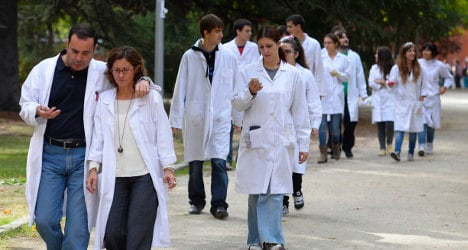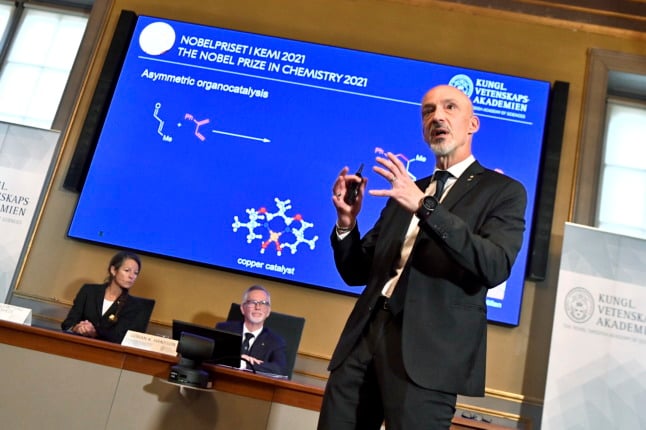In Madrid dozens of researchers, some wearing mourning black, others decked out in their white lab coats, gathered at noon at the steps of the science departments at the Complutense University, one of the world's oldest universities, to mark the moment of silence.
The "day of mourning for science" was organized by the Open Letter for Science group, a platform grouping the main scientific bodies in the country.
It was timed to coincide with the 79th anniversary of the death of Spanish neuroscientist Santiago Ramon y Cajal, who won the Nobel Prize for Medicine in 1906.
"We want to send the message that the government is completely paralyzing research in Spain and condemning it to death with its budget policy," Carlos Andradas, the president of the Confederation of Scientific Associations of Spain, told news agency AFP.
Spending on science and research has been cut dramatically as part of the Spanish government's broader austerity programme aimed at reining in a public deficit that has ballooned since a property bubble collapsed in 2008, sending the economy into a tailspin.
Researchers complain there is sometimes not even enough money to pay for gloves, lab coats and basic materials such as liquid nitrogen and that new research posts are few and far between, driving many scientists to leave the country.
Public investment in scientific research fell by 45 percent between 2009, the year after the economic downturn started, and 2013 even though Spain's research and development budget already ranks far below that of other European nations, according to the Confederation of Scientific Associations of Spain.
The government's budget for 2014 sets aside €5.6 billion ($7.6 billion) for civil research and development, a 1.3 percent rise over the previous year and the first increase since 2009.
But critics say the rise in funding is insignificant and they accuse the government of undermining the country's long-term economic prospects by underfunding science.
"It is true that there has been an increase in funding but it is a very small increase. At this rhythm it will take us 30 years to return to the level of funding that we had just three years ago," said Andradas, a 57-year-old mathematician who attended the silent protest in Madrid.



 Please whitelist us to continue reading.
Please whitelist us to continue reading.
Member comments